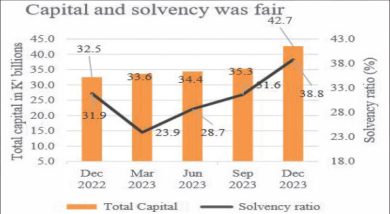Participatory budgeting
Participatory budgeting is an important tool towards achieving involvement of the local populace in deciding on their priority needs and is synonymous with implementation of the decentralisation reform process.
The concept is gaining momentum in Africa, especially in Mozambique, Rwanda, Uganda and Zimbabwe. In these countries, it is said to have increased accountability of local authorities to their citizens, better service delivery, improved prioritisation of broad social needs, increased transparency and access to information and improved local revenue generation.
Locally, the concept is, to an extent, being practised by Blantyre City Council.
The National Local Government Finance Committee (NLGFC) would now like to roll out participatory budgeting to local authorities (LA)effective from the formulation of the 2013-14 budget.
Guidelines on participatory budgeting for LAs in Malawi have been developed and have since been disseminated to all LAs.
We will thus focus our discussion in this and subsequent editions on participatory budgeting to be implemented by LAs in Malawi.
Definition and rationale
Participatory budgeting can be defined as a process of prioritisation and joint decision making through which local community representatives and LAs decide on the final allocation of public investment in their LAs on a yearly basis and work together during implementation of the budget.
Participatory budgeting offers a model to contribute towards deepening local citizenry decision-making on local development and promotes the coexistence of LAs, civil society and the private sector.
It is one way of strengthening transparency and accountability in public resource management as it empowers communities to demand for accountability in public finance management from officials at the local level.
Form of participation
There are three main forms of citizen participation that an LA can consider to adopt while conducting a participatory budgeting process, namely:
1. Direct Participation
This involves the direct and voluntary citizen engagement. In this case, it is not necessary to belong to an organisation to participate. An example would be town hall meetings.
2. Representative Participation
This involves indirect participation where representatives such as through existing organisations engage their LAs on behalf of residents. In this case, the participation is mediated by delegates.
3. Mixed System
This has aspects of both direct and representative participation.
As a standard for all LAs in Malawi, the minimum form of participation that would be expected is the mixed system which takes advantage of the already existing structures at local level. Such structures include the village development committees (VDCs)/urban neighbourhood committees (UNC), area development committees (ADCs), district executive committees (DEC)/urban executive committees (UEC), local authority consultative forums.
In addition, given that issues of the marginalised are often overlooked in the development agenda, LAs will be expected to ensure that gender and issues concerning the youth are appropriately addressed during budgeting and budget implementation. An important first step to achieving this shall be ensuring the participation of women and youth in the participatory budgeting processes.




